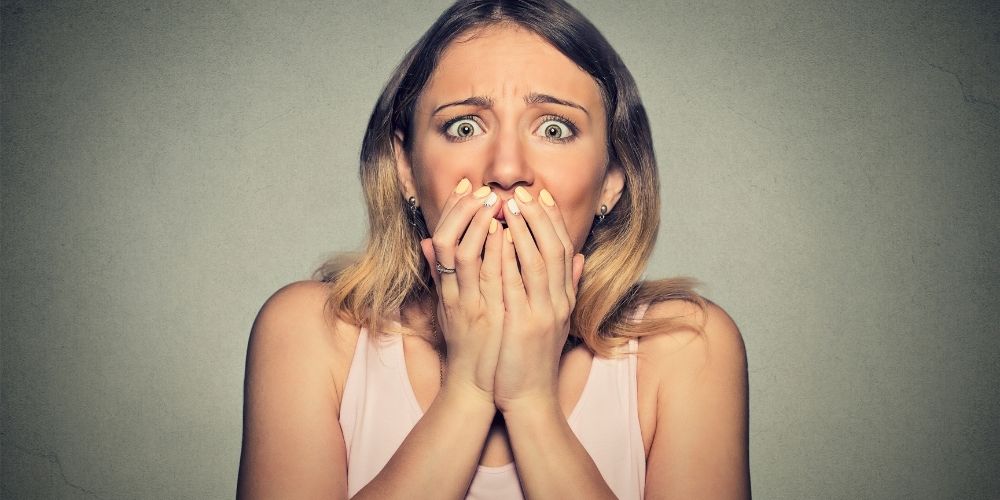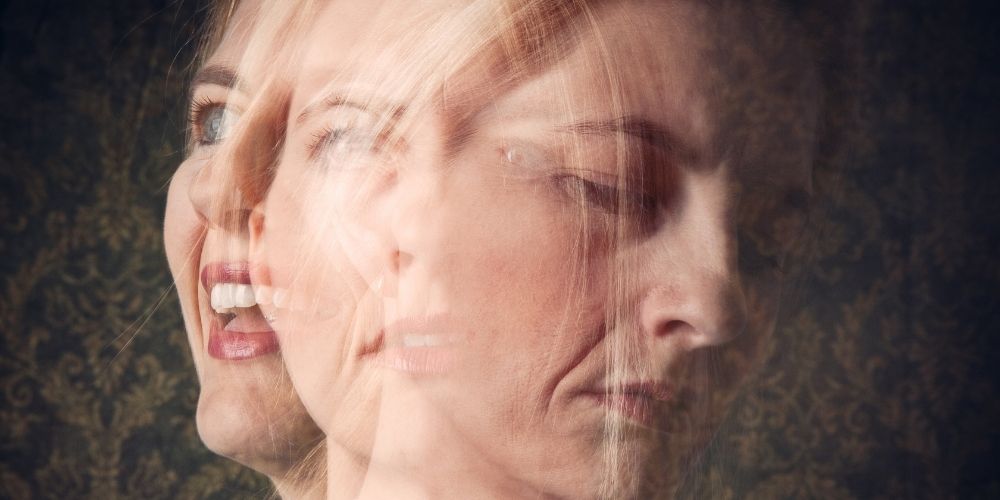The terms “mental health” and “behavioral health” apply to people’s cognitive, behavioral, and emotional wellbeing. It all comes down to how people think, feel, and behave in their daily life and extreme circumstances. The word “mental health” is often used to refer to the lack of a mental illness.
Mental illness may have a negative impact on everyday life, relationships, and physical health, which makes it all the more important to keep your mental health in check.

This relation, however, also works in the opposite direction. Mental health issues can be caused by a variety of factors, including personal circumstances, interpersonal relationships, and physical characteristics.
Taking care of one’s mental wellbeing will improve one’s ability to enjoy life. To do so, you must strike a balance between your daily activities, obligations, and efforts to improve your psychological resilience.
Stress, depression, and anxiety may affect a person’s mental health and disturb their daily routine.
Despite the widespread use of the word “mental health,” many symptoms that physicians classify as psychiatric illnesses or mental disorders have physical origins.
Illnesses aren’t always apparent by physical appearance.
At i-Kare mental health Treatment Center, we understand that mental health problems can be just as harmful as other illnesses. But, these challenges aren’t so apparent to some.
The issue with mental health problems and mental fitness problems is that you may face other problems such as drug abuse or alcoholism if they go untreated or improperly treated. If you’re facing mental health challenges, if you’re battling addiction, or if you’re stuck with a combination of many issues, you need help.
At i-Kare mental health Treatment Center, we care, and we’re here to help you turn things around and take care of your mental health.
What exactly is Mental Health?
Our emotional, psychological, and social wellbeing are all part of our mental wellbeing. It has an effect on the way we think, feel, and act. It also influences how we deal with tension, interact with others, and make healthy and informed decisions. Mental health is critical at all stages of life, including childhood, adolescence, and adulthood.
If you have mental health issues, your thought, attitude, and behavior will be influenced over the course of your life. Many factors play a role in mental illness, including:
- Linked to Biological factors, such as inheriting from genes or brain chemistry
- Life events, such as trauma, violence, or physical abuse
- Mental health issues in the family
Mental health issues are widespread, but there is support, and if you are ready to seek help, then i-kare mental health treatment center is here to help you turn things around. People with mental illnesses will improve, and many will recover fully.
Early Warning Signs
Not sure if you or someone you know, a friend, or a family member is living with mental health problems? Experiencing one or more of the following feelings or behaviors can be an early warning sign of a problem:
- Eating or sleeping excessively or too little
- Pulling away from people and usual activities
- Having low or no energy
- Feeling numb or like nothing matters
- Having unexplained aches and pains
- Feeling helpless or hopeless
- Smoking, drinking or using drugs more than usual
i-kare mental health treatment center realizes what you are going through and will help you cope with all your symptoms.
Symptoms to Look Out For
Are you unsure if you or anyone you know is suffering from mental health issues or mental illness? One or more of the feelings or behaviors mentioned below may be an early warning sign of a problem:
- Excessive or insufficient eating or sleeping
- Withdrawing from social activities and daily routine tasks
- Lacking or having no energy
- Feeling numb or as if nothing is important
- You’re experiencing unexplained aches and pains
- Suffering from a sense of helplessness or hopelessness
- Excessive smoking, drinking, or drug use
- Experiencing extreme mood swings that trigger relationship problems
- Feeling unusually confused, forgetful, on edge, frustrated, upset, worried, or scared
- Yelling or fighting with family and friends
- Having recurring feelings and memories that you can’t seem to shake
- Hearing voices or believing things that are not true in reality
- Have you considered harming yourself or others?
- Inability to carry out everyday activities such as caring for your children or having the energy to go to work or attending school
Some common mental health disorders that the majority of people suffer from:
The most common kinds of mental health disorders or mental illness are as follows:
- anxiety disorders
- mood disorders
- schizophrenia disorders
Anxiety disorders
When we talk about mental health, the first thing that comes to our minds is Anxiety disorders are the most prevalent form of mental illness, according to the Anxiety and Depression Association of America.
People who suffer from these disorders experience intense fear or anxiety in response to specific objects or circumstances. The majority of people who suffer from anxiety disorders will want to stop being exposed to whatever it is that makes them anxious.
Anxiety disorders include the following:
Anxiety disorder and symptoms of generalized anxiety (GAD)
The American Psychiatric Association describes GAD as excessive worry that interferes with daily life.
People might also suffer from some kinds of physical symptoms, including:
- restlessness
- fatigue
- tense muscles
- interrupted sleeping pattern
In people with GAD, a bout of anxiety symptoms does not always require a particular cause.
They can have extreme anxiety when confronted with routine tasks that do not pose a direct threat, such as doing chores or holding appointments. An individual with GAD can experience anxiety without any apparent cause.
Panic attacks
Heart attacks, which include unexpected, debilitating fear or a feeling of impending catastrophe and death, are common in people with panic disorder.
Phobias

There are different types of phobia:
Simple phobia:
Simple Phobias are characterized by an exaggerated fear of particular objects, situations, or animals. A typical example is a fear of spiders.
Social phobia:
Social phobia is a fear of being judged by others. It is often referred to as social anxiety. People who have social phobia also limit their exposure to social situations.
Agoraphobia:
Agoraphobia is the fear of being trapped in a situation where getting out is impossible, such as an elevator or a moving train. Many people mistake this phobia for fear of the outdoors.
Phobias are extremely personal, and doctors aren’t familiar with all of them. There may be thousands of phobias, and what one person considers odd could be a serious issue that consumes their daily lives for another.
Obsessive-compulsive disorder (OCD)
Obsessions and compulsions are common in people with OCD. In other words, they have a strong desire to perform repetitive actions, such as hand washing, and they have regular, anxious thoughts.
Post-traumatic stress disorder (PTSD)
PTSD may develop after individual encounters or experiences a traumatic or stressful event.
The individual believes that their or other people’s lives are in danger during this type of incident.
They may feel scared or feel that they have no control over what is happening around them or to them.
Trauma and fear sensations can then lead to PTSD.
Mood Disorders:

Affective disorders and depressive disorders are terms used to describe mood disorders.
People with these conditions experience dramatic shifts and changes in their mood, with mania (a period of high energy and elation) or depression (a period of low energy and elation) being the most common. Mood disturbances include the following:
Severe depression:
Major depression is characterized by a persistently low mood and a loss of interest in previously enjoyed hobbies and events. They can experience long periods of sorrow or intense sadness.
Bipolar disorder:
Bipolar Disorder is characterized by irregular changes in a person’s mood, energy level, level of activity, and ability to function in everyday life. Manic phases are characterized by high mood, while depressed phases are characterized by low mood.
Seasonal affective disorder (SAD):
SAD is a type of depression that occurs during a specific time that is during the winter months. Reduced daylight causes trigger this form of major depression in the fall, winter, and early spring months. It’s most common in countries that aren’t close to the equator.
Schizophrenia disorders:
Authorities in the field of mental health are also debating whether schizophrenia is a particular disease or a set of illnesses. It’s a highly complicated and complex situation.
Schizophrenia symptoms typically appear between the ages of 16 and 30. The person’s thoughts will be scattered, and they may find it difficult to process information.
Schizophrenia manifests itself in both negative and constructive ways. Delusions, perception disturbances, and hallucinations are all positive signs. Withdrawal, a lack of energy, and a flat or inappropriate mood are all negative signs.
How is mental health linked to addiction?
No matter your opinion of addiction as a mental fitness problem or a disease, we can all agree that there’s a major correlation between addiction and mental health problems. All too often, people turn to drugs, alcohol, and other harmful substances to cope with mental fitness problems. At i-Kare mental health Treatment Center, we can help you find a better way to address your challenges. We provide care for addiction, alcoholism and many mental health illnesses and problems such as:
- Depression
- Mood Disorder
- Anxiety
- Bipolar Disorder
- Schizophrenia
- Generalized Anxiety Disorder
- PTSD
- Social Anxiety
- Low Motivation
If you’re facing these or other mental health problems, you need the help of qualified professionals who are looking out for your best interests. At i-Kare mental health Treatment Center, we can help address any mental health concerns in productive and empowering ways.
Without the right tools to address your mental health needs, it becomes far too easy to fall into bad patterns. If you or someone you know is struggling, it’s time to see how our professionals at i-Kare mental health Treatment Center can help.
Using drugs and alcohol to numb or treat your problems won’t help. Addiction only adds to the challenges of mental health problems.
How can mental illness and addiction be treated?
Treatment programs for these problems and addiction start by taking a personalized and holistic approach to treatment. We offer several approaches to addressing these challenges, including:
- Day/Night Treatment Programs
- Intensive Outpatient Services
- Therapeutic Services
These programs bring a focus to the success of each and every patient that steps through our doors. We offer therapy, counselling, programs and treatment paths that can be tailored to your success.
If you or someone you know is facing addiction, alcoholism, and other mental health needs, it’s time to reach out for help. Our professionals at i-Kare mental health Treatment Center offer the best services and assistance for a wide range of mental health needs. Call (561) 331-8453 anytime 24/7 to get started.

